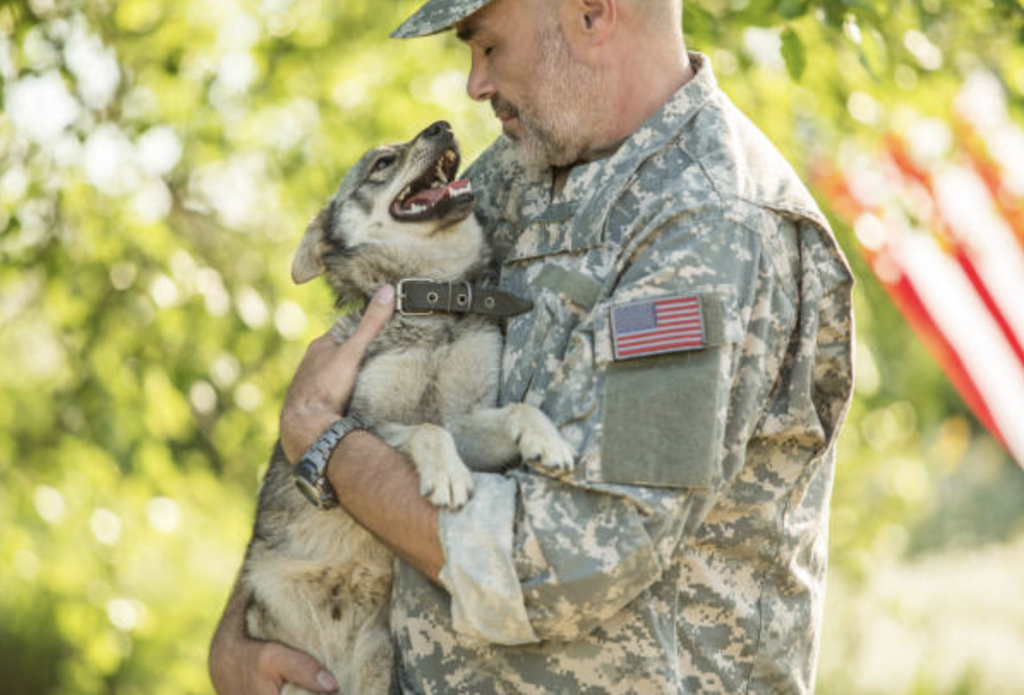For veterans, their battles don’t end on the field. Most of them carry these physical and emotional scars after their service, and they continue to struggle personally for a long time.
To help them cope with these struggles, doctors recommend having a service dog for companionship and support. Alongside therapy, service dogs can help someone recover from PTSD and other mental disorders. They’re also trained depending on a person’s needs. For example, they can guide visually impaired individuals or assist those with movement issues.
Suppose you’re planning to get a service dog. In that case, you first need to get a certification from your doctor showing that you have a disability and need a service dog to support your daily life. This article tackles what conditions qualify you for a service dog and how you can obtain one.
Disabilities That Veterans May Suffer from
Many veterans experience health conditions due to their serving their country. This can be physical, like vision loss, hearing damage, or chronic pain. Statistics show that most veterans have hearing problems like tinnitus and hearing loss. This may be due to loud noises from guns and explosions. Some veterans may also suffer from vision problems due to blast-related brain injuries or old age.
But aside from physical injuries, veterans also suffer from multiple mental health issues. Research shows that veterans who have been deployed are more likely to experience anxiety and depression than civilians. In fact, one in five US veterans deployed in Iraq and Afghanistan experience PTSD or depression. This results in thoughts of suicide or addiction to drugs and alcohol.
But there is light at the end of the tunnel. The US Department of Veterans Affairs (VA) has programs to help veterans recover. Check out this link for more information on VA-related programs.
How to Obtain a Service Dog Through the Veterans Affairs
The Department of Veterans Affairs also supports the presence of guides and service dogs for veterans suffering from service-related injuries. Aside from therapy and medications, the VA created a program to support qualified veterans with service dogs. Follow these steps to obtain a service dog through the VA:
- Meet with a VA health provider. If you have hearing, visual, or mobility issues, you can meet with your VA Clinical Care Provider. They will determine if you need assistive devices, including a service dog. If you have mental health issues, meet with a VA Mental Health Provider instead. They will assess if your mental condition can cause ”substantial mobility limitations”.
- Contact service dog agencies. Unfortunately, the VA does not provide service dogs. Instead, veterans approved to have service dogs will be referred to Assistance Dogs International or International Guide Dog Federation accredited agencies. Contact these agencies and submit the necessary requirements.
- Adopt and train your service dog. Once your application is approved, you can now adopt a trained service dog. Some veterans can also train their own service dogs but to make sure that your dog is properly trained, it’s best to leave it to the professionals.
- Apply for VA benefits. If the VA team approves your application, you can request service dog veterinary health insurance benefits through the VA Prosthetic & Sensory Aids Service.
Conclusion
Treating service-related health conditions is not easy. No medication can cure these illnesses overnight. But having a trained service dog can help improve your condition. So don’t lose hope and try to seek help.
Do you own an assistance animal? Register your pet today.
The Service Animal Registry of California invites you to have your assistance animal registered in order to designate its status. We also encourage you to take our online classes so you can be fully aware of your rights and gain more knowledge about your support animal.
Finally, we present to you our book entitled, “ASSISTANCE ANIMAL LAWS: LEARN YOUR RIGHTS REGARDING SERVICE ANIMALS, EMOTIONAL SUPPORT ANIMALS, THERAPY PETS, AND OTHER DOGS, CATS, AND ASSISTANCE ANIMALS” to provide you with a complete education on assistance animals. Purchase your copy of the book by clicking the image below. 


